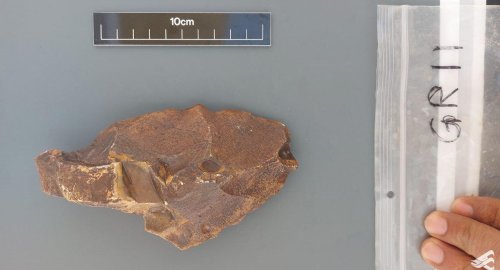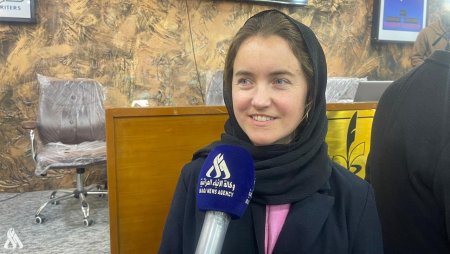
The discovery of Pre-Christian human settlement sites in Iraq

- Today, 18:28
Najaf - INA
An international archaeological research team revealed today, Wednesday, the first evidence proving the existence of human settlements in the pre-Christian era in Iraq. This opens new horizons for scientific excavation in archaeological areas in Iraq.
The archaeological research team told the Iraqi News Agency (INA): "This discovery is a major scientific achievement that reveals the depths of human history in Iraq, confirming the existence of human settlement dating back to the pre-Christian era."
The archaeological researcher from the University of Brussels, Ella Akbarts, told the Iraqi News Agency (INA): "The geological and geomorphological surveys conducted in the Shabaka area in the western desert in Najaf Governorate resulted in the discovery of ancient lakes and valleys, which are ideal environments for ancient man to live in the Stone Age."
She added that "the team found stone tools such as scrapers, blades, axes, and the raw materials used in their manufacture," describing the discovery as "a qualitative leap that opens the door for local and international excavation missions to explore more about that era."
For his part, the archaeological researcher from the University of Al-Qadisiyah, Jaafar Hamza Al-Jawdhari, explained that "the discovery represents the first record of such evidence in Iraq."
Al-Juthari said that "the discovery was made in cooperation with international universities such as the British Institute for the Study of Iraq, the Universities of Leicester, Cambridge, and the Free University of Brussels."
He added that "what was found were tens of thousands of stone tools, such as blades and axes," explaining that "what was found in Najaf, in comparison with what was discovered in Saudi Arabia, Jordan, and Syria, confirms the existence of ancient human settlement in this desert region."
Al-Juthari explained that "this discovery opens new horizons for scientific excavation in the archaeological areas of the Western Desert, whether in Najaf or the neighboring governorates, as these efforts will contribute to drawing a clearer picture of ancient human settlement in Iraq and its civilizational role."











